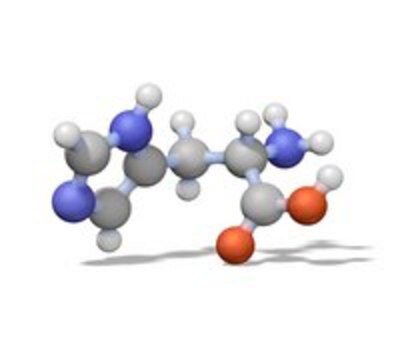567540
Sodium Orthovanadate
A broad spectrum potent inhibitor of protein tyrosine phosphatases.
Synonym(s):
Sodium Orthovanadate, PTP Inhibitor X
About This Item
Recommended Products
Quality Level
form
solid
manufacturer/tradename
Calbiochem®
storage condition
OK to freeze
color
white to off-white
solubility
water: 10 mg/mL
shipped in
ambient
storage temp.
10-30°C
InChI
1S/3Na.4O.V/q3*+1;;3*-1;
InChI key
IHIXIJGXTJIKRB-UHFFFAOYSA-N
General description
Biochem/physiol Actions
Na+,K+-ATPase, acid , alkaline phosphatases, phosphofructokinase, and adenylate kinase
Warning
Reconstitution
Other Notes
Hunke, S., et al. 1995. Biochem. Biophys. Res. Commun.216, 589.
Levchuck, S.G., et al. 1994. Pediatric Res.37, 382A.
Fohr, K.J., et al. 1989. Biochem. J.262, 83.
Swarup, G., et al. 1982. Biochem. Biophys. Res. Commun.107, 1104.
Seargeant, L.E. and Stinson, R.A. 1979. Biochem. J.181, 247.
Legal Information
Signal Word
Warning
Hazard Statements
Precautionary Statements
Hazard Classifications
Acute Tox. 4 Dermal - Acute Tox. 4 Inhalation - Acute Tox. 4 Oral - Eye Irrit. 2 - Skin Irrit. 2
Storage Class Code
13 - Non Combustible Solids
WGK
WGK 3
Flash Point(F)
Not applicable
Flash Point(C)
Not applicable
Certificates of Analysis (COA)
Search for Certificates of Analysis (COA) by entering the products Lot/Batch Number. Lot and Batch Numbers can be found on a product’s label following the words ‘Lot’ or ‘Batch’.
Already Own This Product?
Find documentation for the products that you have recently purchased in the Document Library.
Customers Also Viewed
Articles
Protein tyrosine phosphatases' catalytic mechanism involves transient phosphorylation.
Protein tyrosine phosphatases' catalytic mechanism involves transient phosphorylation.
Protein tyrosine phosphatases' catalytic mechanism involves transient phosphorylation.
Protein tyrosine phosphatases' catalytic mechanism involves transient phosphorylation.
Our team of scientists has experience in all areas of research including Life Science, Material Science, Chemical Synthesis, Chromatography, Analytical and many others.
Contact Technical Service









